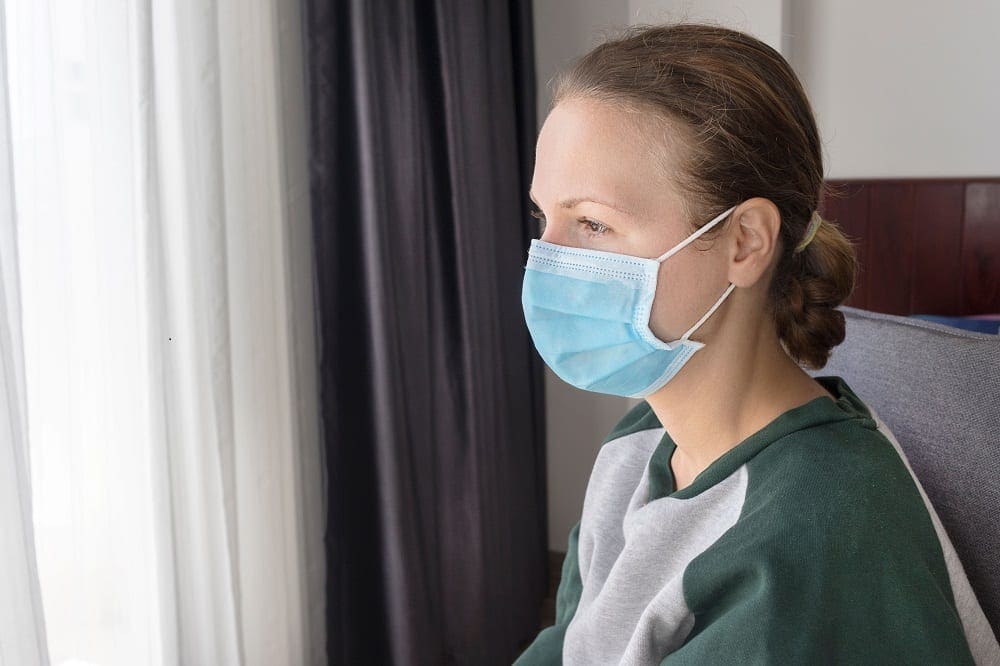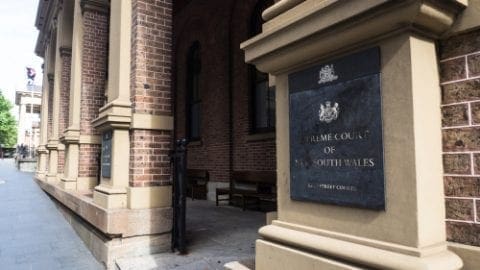With the current restrictions in place due to the COVID-19 epidemic, on 22 April 2020, the NSW Government has introduced new temporary regulations in order to reduce the face-to-face contact between the people who require important legal documentation to be witnessed.
The Attorney General, acknowledging the difficulty of having legal documents witnessed with the COVID-19 restrictions, has announced that a document is able to be witnessed by a legally authorised person, such as a Justice of the Peace, a solicitor or barrister, via electronic means including but not limited to Skype, Zoom and FaceTime.
Under the new regulation, the witness must see the person executing the document in real time to confirm that signature is legitimate, and also has provided the appropriate forms of identification verifying a person’s identity. Upon signing the document, a scanned copy can then be forwarded to the relevant witness for their execution.
The ordinary process requires that a witness must observe the person physically signing the document before them prior to witnessing the document themselves. Naturally, this form of witnessing a document remains valid while the new temporary regulation is in place.
This will reduce physical interactions and enable people to stay at home, whilst ensuring that important legal matters are attended to.
The temporary measures will continue to be in place pending the reviewal of the COVID-19 restrictions by the Government.
Documents that require witnessing by a legal professional or Justice of the Peace include Wills, Powers of Attorney and Statutory Declarations.
The Family Court of Australia has also considered the requirement of parties to execute important Court Documents in legal proceedings, such as Applications, Affidavits and Consent Orders, and implemented measures allowing for parties to electronically execute documents, which are now required to be filed with the Court online. To find out more, click here.
Contact our office to find out more via 02 8917 8700 or by emailing reception@freedmangopalan.com.au.
A Costs Agreement and Disclosure Statement is the initial documentation that a client will receive from law practice.
It is advisable to peruse the documentation carefully prior to executing and returning it to your solicitor. The said documentation governs how professional fees will be calculated for the work done, and when/if the disbursements incurred by the lawyer will be payable by the client.
A Cost Disclosure is to be enclosed in the Costs agreement by every law practice. The law practice must disclose details of its costs to you in writing before commencing any work for you. If you have a matter that requires urgent attention, then the law practice must disclose details of its costs to you as soon as is practicable.
There are different types of Costs Agreements. The most common types are the following;
1. Costs Agreement which provides for costs to be paid on a ‘time costing’ basis, that is, by setting out hourly rates which will apply by reference to the time taken to perform work on your matter.
2. A Fixed Fee agreement, which sets out a fixed amount for carrying out the work described in the agreement (which may be for a stage of the matter or for the whole of the matter).
3. No win- No Fee agreement, also known as Conditional costs agreement, which provides that the payment of some or all of the legal costs is conditional upon the successful outcome of the matter to which the costs relate.
In New South Wales, Costs Agreements and Disclosure Statements issued by lawyers are governed by the Legal Profession Uniform Law Application Act 2014, Legal Profession Uniform Law Application Regulations 2015 and the Legal Profession Uniform General Rules 2015. 42553
A few of the rights you have and that must be disclosed in your costs agreement are as follows;
1. Negotiate the costs agreement with your law practice;
2. To receive a bill of costs from your law practice;
3. To request an itemised bill of costs after you receive a lump sum bill from your law practice;
4. To negotiate the billing method with your law practice;
5. To request from your lawyer written reports about the progress of your matter and the costs incurred in your matter;
6. To apply for costs to be assessed within 12 months if you are unhappy with the costs;
7. To seek the assistance of the designated local regulatory authority in the event of a dispute about legal costs;
8. To accept or reject any offer the law practice makes for an interstate costs law to apply to your matter.
Kindly ensure that the Costs and Disclosure Agreement is thoroughly perused and understood and if you have any issues please do not hesitate to contact our offices via telephone on 02 8917 8700.
In the highly unusual circumstances now faced by Australian parents and carers, COVID-19 is having a significant impact upon public services. This includes the operation of the Court and the family law system. For example, there may be situations that arise which make strict compliance with court orders very difficult, if not, impossible.
For instance, compliance is challenged where orders stipulate that contact with a parent should occur at a designated contact centre, which has since been closed due to COVID-19. With the closure of many state borders, separated parents who live in different states may also find it difficult to comply with their shared parental responsibilities. In addition, there may be genuine safety issues that have arisen where parents wish to restrict the movement of a child from one house to another, in order to reduce the risk of that child’s exposure to the virus.
We then ask, what does this mean for you? How does COVID-19 affect your Parenting Orders, and what are your responsibilities in these unusual times?
Attempting to offer some guidance on this issue, the Law Council of Australia has recently published a top 10 guide for separated parents during COVID-19.
According to the guide: -
1. Parents must still meet their obligations where regulated by a Court Order, unless there is a reasonable excuse for non-compliance;
2. If arrangements become unclear or cannot be met (e.g. quarantine, travel restrictions, or because schools are closed), parents must use common sense to find solutions to challenges;
3. If a change in the parenting matter is anticipated, a parent must give the other parent plenty of notice and explanations so that adjustments can be made;
4. In the event that time arrangements with the other parent cannot occur, then parents are required to find other ways to maintain the connection with the child. This could include digital communications;
5. Parents are expected to make accommodations to the other parent, only if these accommodations are possible and in the best interests of the child;
6. Parents should strive to be open in their communication with the other party about the things you will each do in your respective households to limit the child’s exposure to the virus;
7. At this time, more than ever, there is a need for parents to find compromise in the interests of the child, so it is vital for parents to be solution focused and to be respectful and compassionate in all engagements;
8. There is a very high possibility that some people may lose their job or experience a reduction in their income during this period. Therefore, parents are expected to be understanding of the financial position and financial worry of the other parent, and should work together to find a solution;
9. Understanding that this situation will not resolve overnight, the Family Law Council recognises that parents will experience higher levels of stress, which will lead to family conflict. It is advised that parents remain calm and offer compassion when engaging with the other parent; and
10. Parents are encouraged to remember that they are the beacon for their children during this uncertain time.
Whilst we can appreciate that these are unprecedented times, we can expect further guidance to be delivered as more is known about the COVID-19. This creates a problem in itself as the information is constantly changing. Parents are therefore required to stay informed about their legal rights and responsibilities.
If you are concerned about COVID-19 and the impact it is having on your family law matter, please do not hesitate to contact us. Freedman and Gopalan Solicitors continue to be able to advise all clients experiencing family law issues by telephone, and arrangements can be made for video conferencing when appropriate.
Unfortunately, the current COVID-19 situation and the need to self-isolate at home has resulted in a surge of domestic violence incidents where partners in abusive relationships are living in greater proximity to their abusers than ever before. Below are some tips on what you can do: -
- If you or someone you know is impacted by domestic violence, you can contact 1800RESPECT which is a 24-hour national sexual assault, family and domestic violence counselling line for all Australians who are at risk or experiencing domestic violence.
- Of course, if you are in immediate danger, call 000 for Police or Ambulance.
- In NSW, the Department of Communities and Justice can assist you with accommodation. Due to the current situation, there have also been changes made to residential tenancy laws which in some cases allows you to terminate a lease without penalty if you are experiencing family violence. Further information can be found here: -
https://www.tenants.org.au/factsheet-12-domestic-violence
- Remember to always stay in touch with friends and family, even if you can only do so via text message or social media.
- Should the situation escalate, and you need to contact the Police, you may be able to obtain Apprehended Domestic Violence Order which is a legal document that will protect you from family violence.
- Your mental health and wellbeing are important during these times. A list of services and support contacts can be found here: -
https://www.health.nsw.gov.au/mentalhealth/services/Pages/support-contact-list.aspx
If you are concerned about your legal rights in a relationship, whether it be issues relating to domestic violence, property settlement or child custody, please do not hesitate to contact Freedman & Gopalan Solicitor on 02 8917 8700 for advice.
The Australian legal system places a high value on openness and transparency, and the idea of ‘open justice’ is a fundamental rule of the common law. This is why normally we have open courts, where the public and view trials in real life, proceedings may be videotaped for later viewing, decisions, transcripts and other court documents are published and made available to all.
However, due to COVID-19 and the new laws limiting ‘non-essential’ activities outside the home, many court proceedings are taking place over the phone or via video-conferencing. Even most bail hearings are being heard by a Judge in chambers, which means the Judge and the defendant seeking bail will not be face to face.
What effect will this have on the principles of open court, if you can’t just walk into the court room and view the proceedings?
Most courts in NSW have developed a policy in relation to COVID-19. The Land and Environment Court states only court staff and legal representatives essential to the hearing of the matter should attend the courtroom. The NSW Industrial Relations Commission has banned people from attending hearings solely to observe proceedings. The Federal Court of Australia has put similar measures in place but also states that the Court is considering streaming and other methods to ensure the ‘requisite degree of public access to hearings conformable with the open justice and open court principles’. Possible solutions may be sharing the videoconference links so people may join and observe the online courtroom, or publishing transcripts and videos after the proceeding has concluded. This may involve technology unfamiliar to the courts, and may involve some quick and flexible thinking – something we are all trying to do in this rapidly changing times.
Open justice is extremely important, but so is the health and safety of individuals, court officers and litigants. Action has been taken to stop the spread of COVID-19, and as we settle into a period of strict social distancing, we need to consider reviewing the current policies and operations with a view to ‘maintaining open justice, consistent with the current constraints and health advice’ (Supreme Court of New South Wales).
Domestic Violence is a pattern of abusive behaviour through which a person seeks to control and dominate another person. Apart from physical violence, domestic violence includes sexual, emotional, social, spiritual and economic abuse. Domestic violence is an ongoing behaviour that gradually undermines the victim’s confidence and ability to leave the abusive partner. Domestic violence causes physical and psychological harm to a person.
Around the world, as cities have gone into lockdown to stop the spread of coronavirus, the mass efforts to save lives have put one vulnerable group more at risk. Women and children who live with domestic violence have no or much less means of escape from their abusers during quarantine. The victims living with the perpetrators are at a constant risk.
The “Stay at home” would be more like “hell in closed doors” for many and for these victims leaving violent relationships is likely to become far more difficult and dangerous.
While days may seem too long for many of us now, the days are merciless for that encountering domestic violence. The children who got safety and normalcy at school, but who are at home now, being beaten and abused or forced to watch beatings. The horror of the virus is not simply it being toxic but the violent circumstances it creates.
Prime Minister Scott Morrison responded on 29 March 2020 with a promise of A$150million in the form of support for telephone counselling services who address domestic violence, including to 1800 Respect and MensLine. The Prime Minister has acknowledged that for many families, home is not a safe place and more needs to be done to counter the threat.
The law grants police and the courts power to protect persons in need of protection from perpetrators of domestic violence by way of Apprehended Violence Orders or Apprehended Domestic Violence Orders. Breaches of these Orders are a criminal offence and can have serious consequences.
If you are experiencing domestic violence, please do not hesitate to contact 1800 RESPECT (1800 737 732), LifeLine, 13 11 14, or feel free to contact our offices at 02 8917 8700 to speak to one of our experienced lawyers in domestic and family violence matters.
On 2 April 2020, the Australian Government announced a Early Childhood Education and Care Relief Package with payments to be made directly to child care services and early childhood education operators, in lieu of the Child Care Subsidy and the Additional Child Care Subsidy, in order to ensure that childcare and early education centres remain open. The Relief Package is to due to officially commence on 6 April 2020.
As a result of the current COVID-19 epidemic, operators have seen a significant decrease in enrolments and attendance as parents withdraw their children from centres in fear of exposing their children to the virus, as well as financial uncertainty due to the increase in unemployment rates.
The Relief will ensure that the centres carrying out early childhood education and childcare services remain open for the children to attend and greatly assist working parents in particular.
What this means for you:-
- Parents who are currently sending their children to child centres are able to continue to do so free of charge, or obtain a subsidy; and
- For parents who have withdrawn their children from childcare and early childhood education centres and intend to re-enrol, services are able to waive gap fees payable by returning families.
However, there is are three factors which will determine a family’s level of Child Care Subsidy. See the Department of Education's Child Care Subsidy page and FAQ page to see whether you meet the eligibility test and to learn further information. Options are also available for parents who are currently studying/training, self-employed, looking for work and even volunteering, as well as other positions.
There is a range of government assistance available to early learning and childcare operators, which also includes:
- The $130 billion JobKeeper payment
- A cash flow boost of at least $20,000 and up to $100,000 with payments equal to 100 per cent of businesses’ and not-for-profits’ salary and wages withheld
- Loan guarantees so businesses can get working capital
The system will be reviewed after one month, with an extension to be considered after three months.
If you have any queries in relation to the above, please do not hesitate to contact Freedman & Gopalan Solicitors on 02 8917 8700 or send us an email at reception@freedmangopalan.com.au.
The current pandemic is having an enormous impact on Australian families, particularly those who currently have family law orders to follow through.
What is expected by the Court during this unprecedented time?
- The best interest of your child is imperative and ensuring the child’s safety and wellbeing should be the priority.
- Coupled with each parent’s responsibilities to act for the child’s best interests, parents are still expected to comply with court orders. That being the case, time stipulated for the child to spend with each parent should be followed through.
- However, during this unprecedented time, every family’s circumstances are different, and there may very well be situations where parents are unable to comply with court orders. For instance, there may be genuine safety concerns with regards to changeovers or having a designated contact centre which is currently no longer operating.
- If able and safe to do, parties should communicate with each other a practical solution to resolve this. The Court has noted that this should be done sensibly and the best interest of your child should be the priority, and each parent are to appreciate each other’s concerns and attempt to revise the current arrangements if need be.
- If a new parenting arrangement can in fact be arrived at, even if it is to be adjusted temporarily for the current COVID-19 pandemic, this arrangement should be in writing (e.g. by way of email, text message or WhatsApp).
If you require further guidance in relation to your current parenting orders, please do not hesitate to contact Freedman & Gopalan Solicitors on 02 8917 8700 or send us an email at reception@freedmangopalan.com.au.
The Covid-19 pandemic has plunged the nation into uncertainty on two fronts: health, and the economy.
Thousands of Australian workers had their hours reduced, been stood down, or had their employment terminated, leading to large queues outside Centrelink offices and the MyGov website crashing as demand surges.
As we grapple with the economic complications this pandemic has caused, it is important to understand your rights and entitlements as an employee. What is the difference between being stood down and being terminated? Where do you, as employees, stand? And what options are available to you?
What does it mean to be stood down?
According to Fair Work Australia, “an employer may stand down an employee during a period in which the employee cannot usefully be employed”.
This is usually considered to be a temporary measure and occurs when companies want their employees to return to work eventually.
With COVID-19 causing a significant reduction in the business operations, and also causing a mandatory shut-down of several workplaces entirely, there is the risk of employers rely on their statutory power to stand down their employees.
However, as an employee, you are entitled to know whether your employers actions are justified.
You can only legally be stood down by your employer if you “cannot be usefully employed”. All employees should be given the opportunity to perform any work that is available and which they are capable of performing before a decision is made to stand them down.
What does it mean to be terminated?
Termination of employment can occur when workers are dismissed (fired) by their employer as a result of a breach of contract, or where the company can longer afford to employ them.
Given the financial downturn of businesses during COVID-19, there is the likelihood that a vast majority of jobs will made redundant.
A redundancy occurs when an employer no longer requires an employee’s job to be done by anyone. For example, where a business closes down entirely, all jobs of that employer are redundant.
Where an employee’s job is made redundant, there are the following two options available to you: -
1. You could either be offered suitable redeployment, and if you accept this, you will continue to be employed, with your accrued entitlements occurring; or
2. Your employment may be terminated due to redundancy, in which case you may be entitled to redundancy pay, apart from notice and payment of all your other accrued entitlements.
What entitlements are there for workers who have lost work?
If you have lost your job, been stood down, or if your shifts are significantly reduced, you are eligible for Centrelink’s $550.00 per week coronavirus supplement.
People taking leave from work to care for someone with COVID-19 are also eligible for the government supplement.
If you are already receiving welfare payments this supplement will come through automatically. If you do not already receive welfare, you will need to register through the MyGov website.
If you think you have been unlawfully stood down, or you have an action of unfair dismissal against your employer, please do not hesitate to contact our friendly team on 02 8917 8700 for legal assistance.









